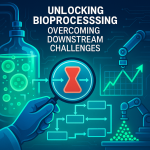📊 They aim to develop better models by leveraging AI and combining varied datasets, including batch data and time series measurements.
🔍 Key findings reveal upstream bioreactor variations impact product quality. Their ongoing work seeks to optimize data-driven models in this field.
Introduction:
The article discusses advancements in the field of digital twins, particularly in how they can be optimized for biomanufacturing processes by enhancing the utilization of existing datasets. Research from Seoul National University emphasizes improving the modeling of biomanufacturing processes by leveraging historical data and innovative modeling approaches.
- A research group at Seoul National University is developing digital twins for biomanufacturing processes, using data collected over eight years, much of which originated from MIT.
- The traditional reliance on simple data-driven models is being shifted towards more sophisticated AI modeling techniques.
- The team aims to automate the analysis of process data to recommend the most suitable modeling techniques based on available data characteristics.
- There is an ongoing investigation into combining infrequent batch data with time-series measurements to develop more accurate models.
- The research highlights the importance of identifying the sources of variation in biomanufacturing processes to enhance product quality attributes effectively.
Conclusion:
The article underscores the potential of advanced modeling approaches in improving the efficacy of digital twins in biomanufacturing. With ongoing research focused on optimizing data utilization, these innovations may lead to significant advancements in process understanding and product quality, paving the way for future developments in the field.



